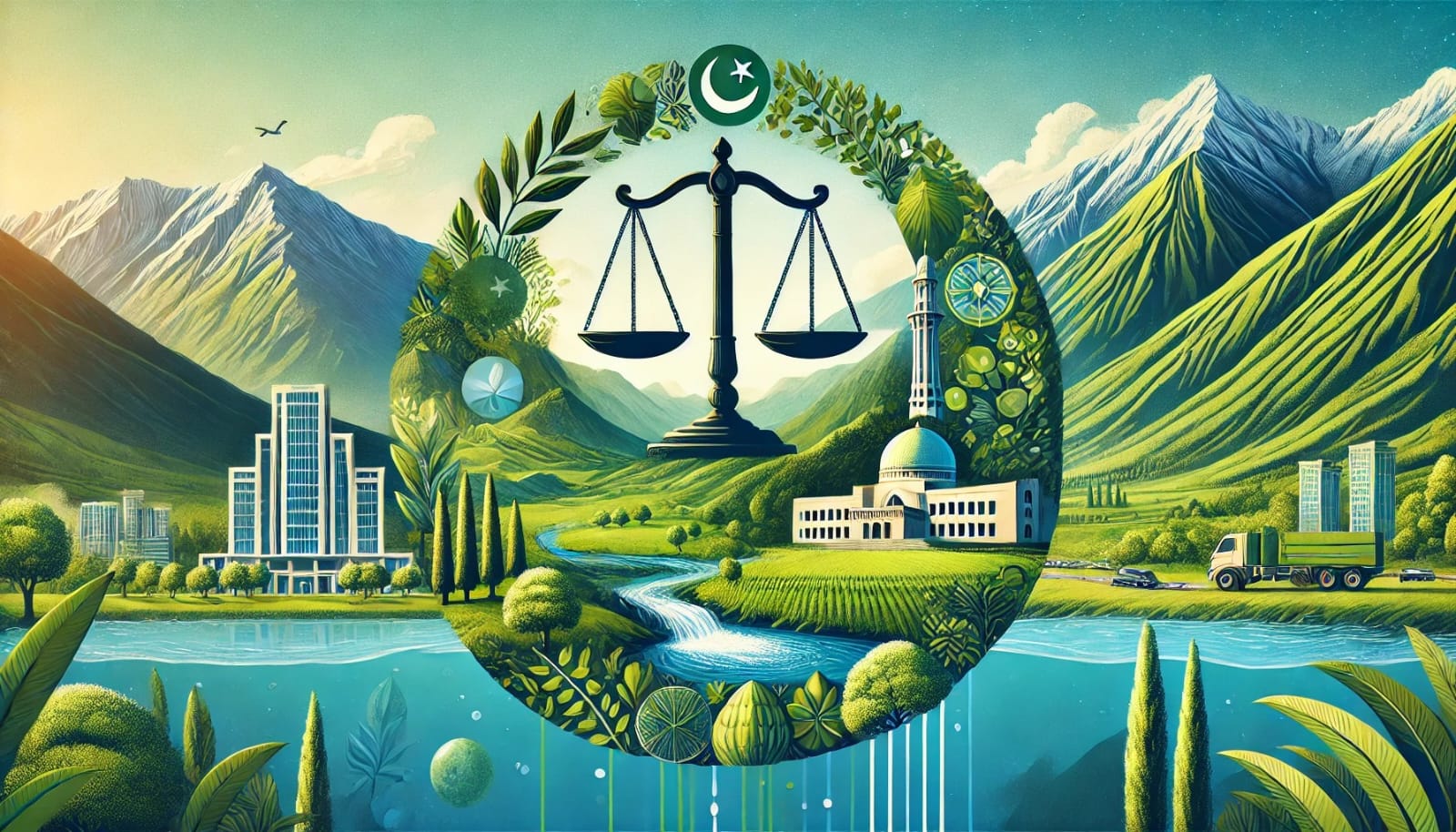The much-awaited 26th Constitutional Amendment Bill along has introduced 22 amendments in the Constitution of Pakistan 1973 and most importantly recognized the right to a clean and healthy environment as a fundamental right for the citizens of Pakistan.
The Constitution of Pakistan guarantees several fundamental rights to its citizens, including the right to life and liberty, safeguards against unlawful arrest and detention, the right to a fair trial, protection against forced labor, freedom of religion, and cultural and educational rights for minorities.
The 26th Constitutional Amendment establishes a legal framework that empowers citizens to demand governmental accountability regarding environmental issues establishing a legal basis for citizens to advocate for environmental protection. The amendment aligns with global efforts to promote sustainability and environmental justice.
The amendment underscores the importance of environmental protection and aligns with a global trend where over 150 countries have acknowledged the right to a clean environment in various forms, either through national constitutions, legal frameworks, or international treaties.
In 2021, the United Nations Human Rights Council adopted a historic resolution affirming that a clean, healthy, and sustainable environment is a human right.
Healthy lifestyle and life expectancy are also linked to the Human Development Index (HDI). The Sustainable Development Goals (SDGs) goal no three ‘good health and well-being’, goal six ‘clean water and sanitation’, goal eleven sustainable cities and communities, goal thirteen climate action, goal fourteen ‘life below water’, and goal 15 ‘life on land’ are linked to healthy lifestyle goals.
Many countries are now taking steps to address environmental crises and protect vulnerable populations, and Pakistan's recent legislative action is a significant step in this direction.
In the latest development, Pakistan is likely to seek between $1.5 billion to $2 billion from the International Monetary Fund (IMF) to mitigate the effects of climate change — specifically from the horrific 2022 floods that drowned the two-thirds of Pakistan.
The funding is crucial as the country grapples with the long-term impacts of extreme weather events, which are exacerbated by climate change. The outcomes of these negotiations will play an important role in shaping Pakistan's financial recovery and its strategies for climate resilience.
Pakistan faces significant challenges due to climate change, impacting its diverse ecosystems and the livelihoods of its citizens.
Pakistan’s geographical features, including mountains, deserts, rivers, and coastal areas, contribute to its vulnerability as mountains in the northern regions, dominated by the Himalayas and the Karakoram Range are sensitive to climate variations, leading to glacial melt and increased flooding while the Indus River system is vital for agriculture but is threatened erratic monsoon patterns.
Regions like the Thar Desert experience extreme temperatures and water scarcity, exacerbated by climate change. When it comes to the coastal areas, the Arabian Sea coast faces rising sea levels and increased salinity, which threaten mangroves and marine biodiversity
The consequences of climate change in Pakistan include water scarcity overall and biodiversity loss including urbanization and pollution lead to habitat destruction, causing declining wildlife populations, including endangered species like the Indus river dolphin and the snow leopard.
Rapid urbanization has led to severe air and plastic pollution in major cities such as Karachi and Lahore, impacting public health and introducing the fifth season of Pakistan — smog.
Pro-people and pro-nature policies
Pakistan must implement pro-people and pro-nature strategies that encompass policy reforms, community engagement, and sustainable practices including strengthening environmental laws and enforcing stricter regulations on industrial emissions and waste management.
Our villages and cities need a compassionate and media-led public awareness campaign to educate communities about sustainable practices, recycling, and conservation efforts.
Experts emphasized incentivizing sustainable agriculture in a bid to promote organic farming techniques that enhance soil health and reduce chemical usage.
The government civic bodies, local bodies, and government machinery need to emphasize afforestation projects for the initiation of tree plantation drives in urban areas to combat air pollution and enhance biodiversity.
For a clean and healthy environment, waste management systems with proper waste segregation and recycling programs are needed to address plastic pollution.
Pakistan being a developing country, needs international cooperation seeking funding and technical support for climate adaptation projects.
The recognition of the right to a clean and healthy environment is an important step toward sustainable development and improved quality of life for all Pakistanis including men, women, and children.


























